One of the best episodes in Wole Soyinka’s third novel (his first since 1973) takes place not in Nigeria but in Salzburg. An engineer-turned-entrepreneur has died in hospital there after a bomb attack back home. His grasping clan descends from Lagos to parade their last respects — and stake their claims. The drive to the cemetery triggers a ‘torrent of eulogies to Austrian horticulture’. In a ‘concerted sibling gush’, plutocratic relatives swoon over the contrast between these clean, green vistas and the choking inferno of Lagos — an urban nightmare aggravated by their own mercenary scams.
Soyinka’s characters often hide behind such ‘straw masks’ of pretentiousness, hypocrisy and fakery. The ghastly good taste of these Alpine obsequies raises his game; after all, ‘the dead are a free-for-all for the world to feast on’. Russian authors spent generations trying to skewer the nation-defining blend of kitsch, snobbery, bad faith and hi-falutin vulgarity they called poshlost. From Gogol to Nabokov, they would have felt at home with Soyinka’s Nigerian elite.
It’s 35 years since Soyinka became the first sub-Saharan African writer to win the Nobel Prize in literature. If he escaped the post-Nobel curse of vacuous seniority, his later non-fiction — above all, the quartet of memoirs that began in 1981 with the wonderful Aké — takes much of the credit. He’s now 87: the drama and poetry that made his name before and after Nigerian independence has understandably slowed to a trickle.
Yet here comes this whopper of a 450-page satire on the misdeeds of an entitled ruling class and the horrific miseries of the land they misgovern. Frequently as diffuse as its full title, Chronicles is hard to recommend as a spruce and tidy novel — a well-trimmed Salzburg cemetery of fiction. It sprawls and it sags. Yet its tragicomedy of excess has a crazy, wayward grandeur. Soyinka can still take down the vices of the mighty with madcap valour and tumbling loquacity. His untamed brio reminds you that, after their elevation, Nobel laureates don’t invariably shed energy or talent. What they lose, you suspect, is a decent editor.
True, Soyinka has shown a propensity before to overload his long-form prose. In 1965, his first novel, The Interpreters, had its own splashes of deep purple. In some respects, Chronicles can be read as a disenchanted reprise of that work. The debut novel portrayed five young Nigerian intellectuals torn between a myth-nourished past and the fragile modernity of a newly decolonised homeland. The new one shows us a quartet of high-achieving student friends who smash into late-career crises that expose the plight of the wounded nation outside their ‘professional stockades’.
We initially meet three: the engineer Duyole Pitan-Payne, appointed to a swanky post at the UN in New York but plagued by scheming enemies; the accountant Prince Badetona, an upright sceptic, caught in the traps set for him by more devious colleagues; and the novel’s moral anchor, Dr Kighare Menka. He is a surgeon who selflessly treats the mangled victims of Boko Haram and other gangster fanatics but carries the guilt of having performed a Sharia-imposed amputation himself (on a goat thief).
Where’s the fourth member of this fraternity called the ‘Gong of Four’, the mysterious Farodion? Soyinka keeps us guessing — although readers might join the dots before his big reveal. In the meantime, his satire on top-down rackets such as the ‘Yeoman of the Year’ awards — a ‘brilliantly elastic concept’ that distracts citizens from their ailing infrastructure with a glitzy media cycle of pseudo-events — can be as verbose as its targets. Clotted sentences plod through laborious burlesques. What’s amiss with parts of Chronicles is a kind of imitative fallacy: rhetorical obfuscation pilloried by… rhetorical obfuscation. Late-period Soyinka can sound like a West African riposte to the elder Henry James.
In key sections, though, the prose snaps to attention, especially in stretches of dialogue where deadly ambitions spar under a genteel surface. The unctuous, ruthless premier, Sir Godfrey Danfere (aka ‘Sir Goddie’ or, as he prefers, the ‘People’s Steward’), has a chilling plausibility. Meanwhile, the fake sage Papa Davina whisks up elements of Christianity, Islam and even Zoroastrianism into his lucrative mission as an inter-faith ‘messenger of peace and healing’. This seductive monster speaks for a class of kleptocratic impostors when he says that ‘if you inhabit a dung heap, you can still ensure that you are sitting on top of it’. Papa D keeps up Soyinka’s career-long mockery of fraudulent preachers and prophets. ‘Yours the spiritual side, mine the political,’ Sir Goddie tells the ecumenical wheeler-dealer at the novel’s end. ‘The meeting point is business.’
If Nigeria’s endemic corruption inflames — but inspires — Soyinka, its mass cruelties push him into something near despair. As Dr Menka operates on the hideous injuries left by child rapists or extremist thugs (often the same people), police brutality and everyday chaos breed an indifference to suffering. For Pitan-Payne, the state of his nation ‘challenges the collective notion of soul. Something is broken. Beyond race. Outside colour or history. Something has cracked. Can’t be put back together.’ Yes, that’s a character speaking; but the increasingly Gothic plot turns on a secret trade in body parts — a ‘market in morbidity’ — that makes dismemberment and mutilation a sort of signature activity. The ‘dark alley of power fixation’ leads straight to the slaughterhouse.
‘Days of high optimism. We’re done with that,’ Menka laments. ‘End of Big Dreams.’ In their aftermath, Soyinka dissects the dystopian absurdities of Nigerian poshlost. He does so with a scattershot extravagance that sometimes misfires. There’s still much laughter in the dark.
Got something to add? Join the discussion and comment below.
Get 10 issues for just $10
Subscribe to The Spectator Australia today for the next 10 magazine issues, plus full online access, for just $10.
You might disagree with half of it, but you’ll enjoy reading all of it. Try your first month for free, then just $2 a week for the remainder of your first year.

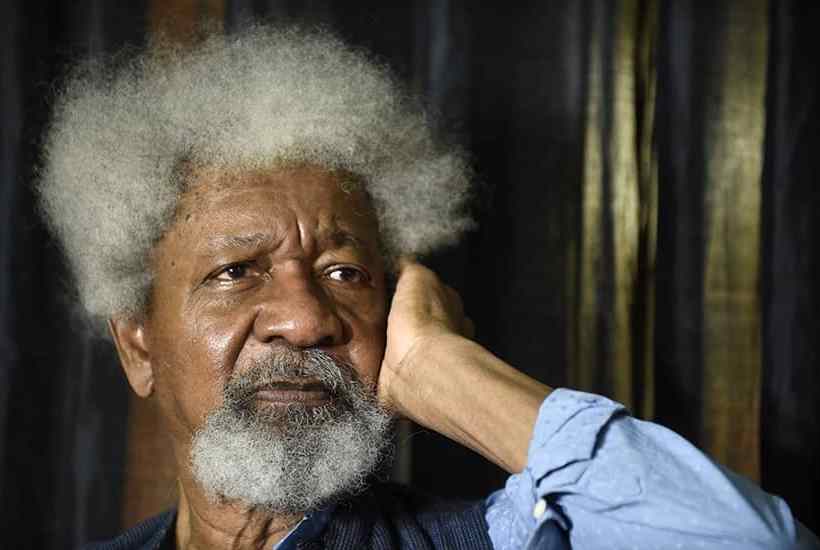

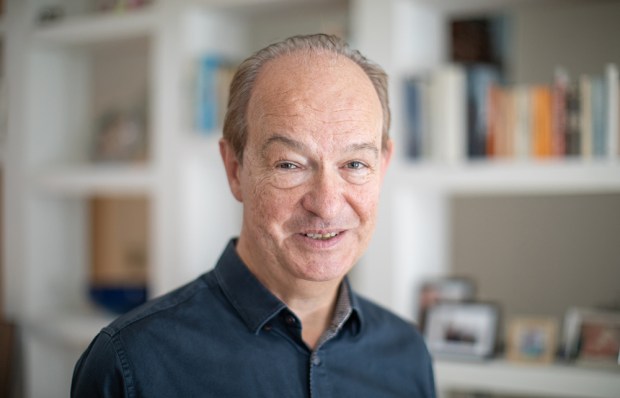

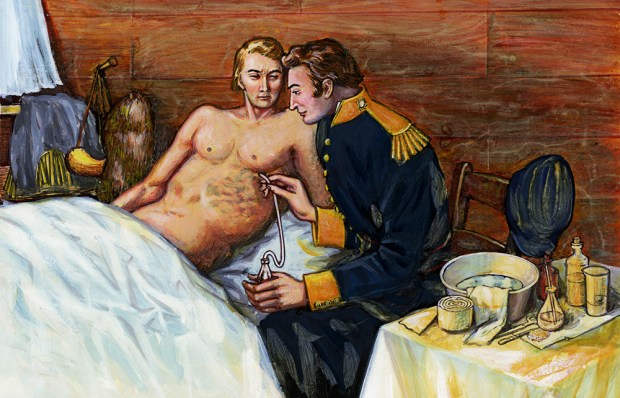
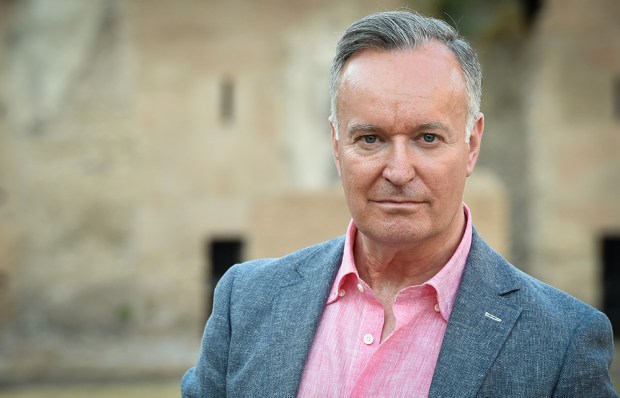
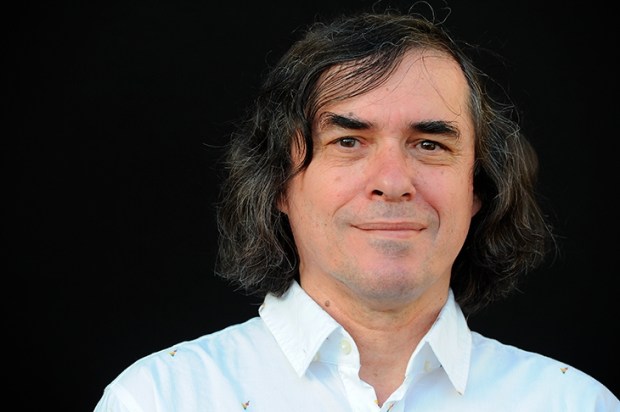






Comments
Don't miss out
Join the conversation with other Spectator Australia readers. Subscribe to leave a comment.
SUBSCRIBEAlready a subscriber? Log in